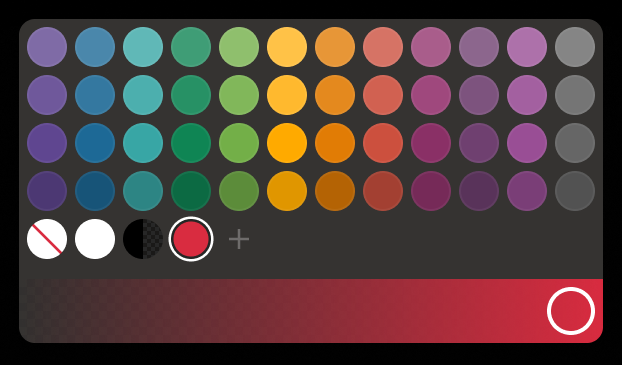- DarkLight
Swing Index (SI)
- DarkLight
Swing Index (SI) is an indicator that attempts to predict future short-term price movements. SI is used as a part of Accumulation Swing Index and is calculated as the difference between the current and previous OHLC values.
SI = 50 x (Cy - C + 1/2 (Cy - Oy) + 1/4 (C - O) / R) x K/T
where:
C – today's closing price
Cy – yesterday's closing price
H – today's highest price
Hy – yesterday's highest price
K – the larger of Hy - C and Ly - C
L – today's lowest price
Ly – yesterday's lowest price
O – today's opening price
Oy – yesterday's opening price
T – the maximum amount of price change for the day
R – varies based on the relationship between C, Hy and Ly (see table below)
| To obtain R, first determine the largest of: | |
| (1) H - Cy (2) L - Cy (3) H - L | If (1) is largest, R = H - Cy - 1/2 (L - Cy) + 1/4 (Cy - Oy) If (2) is largest, R = L - Cy - 1/2 (H - Cy) + 1/4 (Cy - Oy) If (3) is largest, R = H - L + 1/4 (Cy - Oy) |
.png) Swing Index
Swing Index INPUTS
| Input | Description |
|---|---|
| Limit | The limit move for a security |
PLOTS
The plot renders the data you are working with on the chart. You can show/hide a plot by clicking the corresponding item in the settings. Every plot has a set of basic settings that you can change: color, weight, and type.
| Plot | Description |
|---|---|
| SI | The Swing Index plot |
| Zero | The zero level |
| Color |
|---|
Click the color rectangle under the plot's name to open the palette. Use the slider at the bottom to set the opacity of the color.  Palette PaletteTo create a custom color:
The custom-created colors are added to your palette. To remove a custom color, drag it out of the palette. |
| Weight |
| Change the value (in px) to adjust the thickness of the plot. |
| Type |
The following plot types are available:
|
OVERLAYING
Check Overlaying to display the indicator on the chart. Otherwise, the indicator is shown in a study pane down below.


